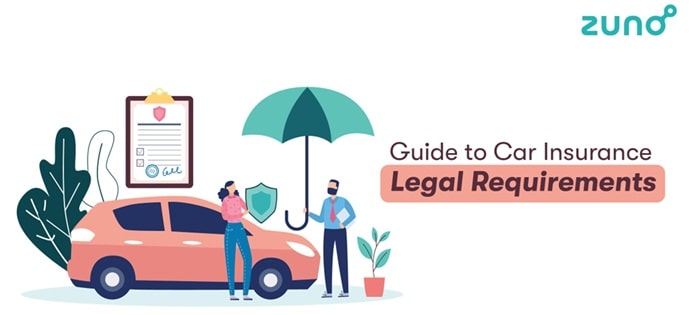If you think car insurance is just a tick-box formality or another piece of paper in your glovebox—think again. In India, car insurance is not only a legal mandate but also a financial safety net you must understand in depth. Gone are the days when one could simply buy the cheapest policy and forget about it. The laws have tightened, the enforcement has intensified, and let’s face it—you need to be smarter than ever before about what your car insurance covers, and more importantly, what the law requires you to have.
So, buckle up. This isn’t just another generic piece on motor insurance. This is your no-nonsense guide to the legal requirements of car insurance in India, tailored for the aware, the informed, and the smart drivers of today.

The Legal Basics: What’s Actually Mandatory?
Let’s start with what’s non-negotiable.
Under the Motor Vehicles Act, 1988, every vehicle on Indian roads must have at least third-party car insurance. No exceptions. Whether you’re driving a brand-new SUV or a second-hand hatchback, if it’s on the road, it needs insurance.
✅ What is Third-Party Liability Insurance?
Third-party insurance is the bare minimum car insurance requirement in India. Here’s what it covers:
- Injury or death of a third-party person (i.e., not you or your co-passenger).
- Damage to third-party property (another vehicle, a wall, a shopfront, etc.)
This type of insurance does not cover damage to your own vehicle. It’s purely meant to protect others from damages caused by your vehicle, and it’s legally binding.
Penalties for Non-Compliance: The Risks Are Real
Still thinking of skipping or delaying your renewal? Think again. Driving without valid insurance isn’t just risky—it’s a criminal offense.
Here’s what you’re looking at if you violate the law:
- First Offense: ₹2,000 fine +/or imprisonment up to 3 months.
- Repeat Offense: ₹4,000 fine +/or imprisonment up to 3 months.
And let’s be real—if you’re caught up in an accident without insurance, you’re exposed to criminal charges and financial ruin. The compensation amount in fatal or serious injuries can run into lakhs, if not crores.
Why Third-Party Isn’t Enough (Legally it is, Practically it’s Not)
While third-party is the legal minimum, most smart car owners go a step further. Enter: Comprehensive Car Insurance. Why? Because legal compliance is just the bare minimum. Protection, peace of mind, and financial coverage—that’s where comprehensive insurance plays a major role.
Here’s what comprehensive policies cover:
- Damage to your own car (accidents, fire, theft, natural disasters)
- Personal accident cover
- Third-party liabilities (included by default)
- Add-ons like zero depreciation, engine protection, etc.
Even if it’s not legally required, comprehensive coverage saves you from financial hemorrhage in real-world scenarios.
Understanding Car Insurance Claim Rules
A lot of people are under the impression that if they have insurance, the claim process is automatic. That’s far from the truth. Knowing the car insurance claim rules is essential—not just for legal compliance but to ensure you’re not left stranded when disaster strikes.
Here’s how the claim process generally works (and what you should keep in mind):
- Immediate Intimation
Inform your insurer as soon as an accident or incident occurs. Delay in informing can lead to claim rejection. - FIR in Case of Third-Party Damage or Theft
It’s legally required to file an FIR if there’s third-party injury/death or if your car is stolen. Your claim won’t proceed without it. - Survey & Inspection
A surveyor from the insurance company will inspect the damage before repairs begin. Tampering with the vehicle beforehand can nullify your claim. - Cashless vs Reimbursement
Cashless claims are quicker, but only possible at network garages. Reimbursement claims take longer but offer flexibility. - Documentation Is Key
Driving license, RC book, policy papers, FIR copy, and repair estimates—keep them ready and handy.
The Legal Coverage Checklist (Don’t Miss This)
To make sure you’re legally covered, cross-check the following:
- Your policy is active and not expired
- You have minimum car insurance requirements fulfilled (i.e., third-party)
- You carry a valid insurance certificate—digital or physical
- You’ve opted for a PA (Personal Accident) Cover for the owner-driver (mandatory since 2019, for ₹15 lakh)
- You update your insurer in case of any modifications or change in use
Missing out on any of the above may not just impact claims—it could also land you in legal trouble.
Electric Vehicles & Legal Insurance: The New Frontier
EVs are on the rise, and so are their insurance needs. While third-party insurance remains mandatory for EVs too, the IRDAI has announced special long-term third-party premium rates for electric vehicles to promote adoption.
So yes, even your shiny new electric car isn’t exempt from the law. Legal coverage is still a must.
Why Legal Compliance Isn’t Just About Law—It’s About Smart Driving
Think of car insurance not as an obligation, but as a shield. Legal compliance is the floor, not the ceiling. The real win is in understanding what your policy covers, knowing the claim rules inside out, and going beyond the minimum to actually protect your finances, your time, and your peace of mind.
In Conclusion: Drive Legally, Drive Smart—With Zuno
Car insurance is no longer just a checkbox on your to-do list—it’s a critical part of being a responsible driver in India. From understanding minimum car insurance requirements to navigating car insurance claim rules, knowledge isn’t just power—it’s protection.
And when it comes to picking a reliable, digital-first insurance provider that’s made for today’s generation, Zuno is the name that stands out. With seamless online claim processes, zero paperwork, and policies that don’t just comply but protect, Zuno ensures you drive not just with coverage, but with confidence.
Don’t just insure your car. Insure your journey.

